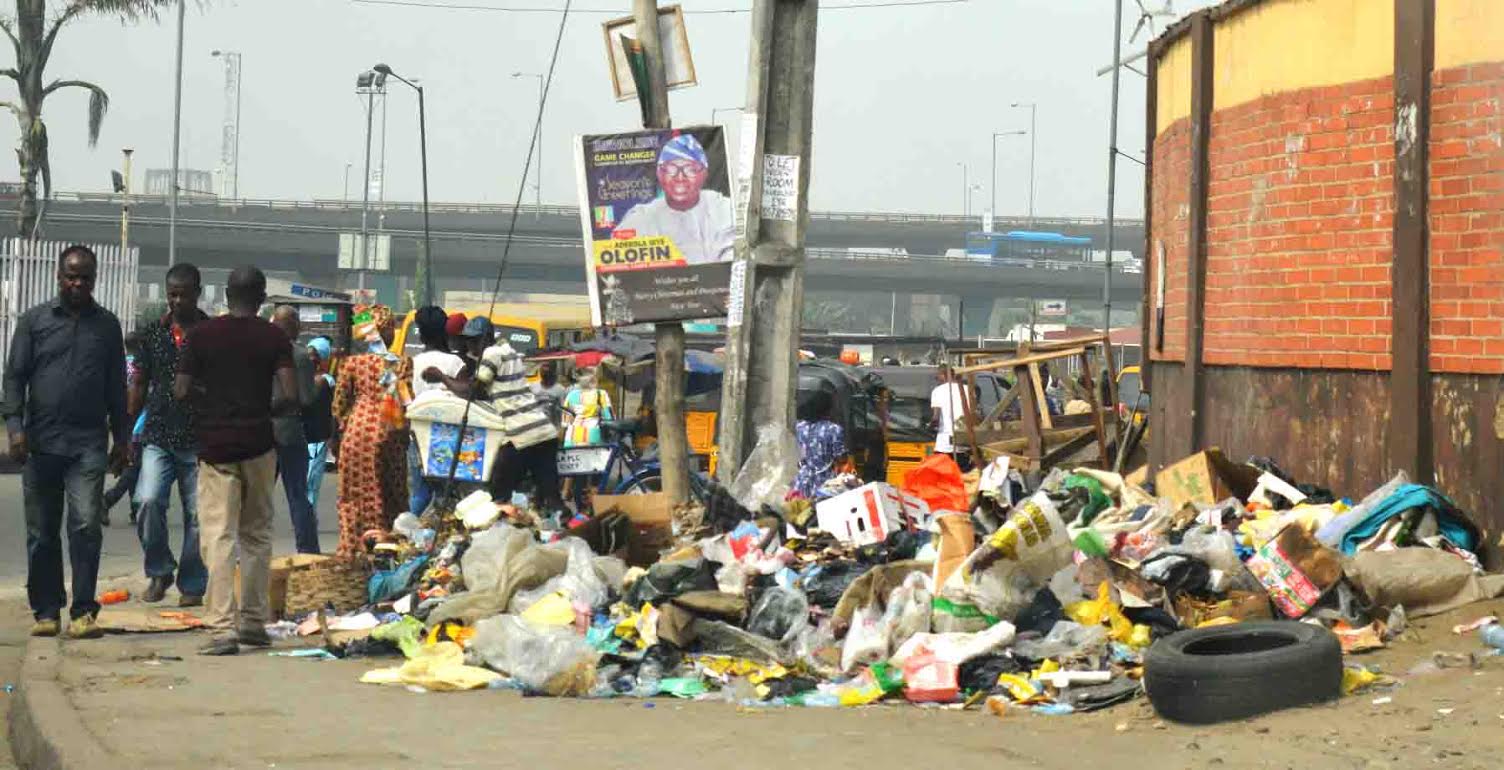By Bisola Brahimo
The Lagos of our dream is a cleaner mega city that is not only environmentally clean, but a commercial hub that offers prosperity to everyone. Consequently, the Cleaner Lagos Initiative (CLI) was established as an extensive and sustainable waste management system for Lagos.
Designed to maximize the state’s potential in solid waste management, the Cleaner Lagos Initiative (CLI) will provide permanent solution to waste recycling, recovery and waste reduction challenges that have dimmed the shine of the state for decades, and offer innovative approach to liquid waste management, drainage management and waste water treatment in the State.
As a revolutionary effort designed to reposition the state, the Cleaner Lagos Initiative seeks to fully develop sufficient infrastructure for waste collection, efficient waste processing and disposal mechanism to in line with the state’s environmental objectives.
Additionally, the scheme is geared towards creating an enabling environment for non-governmental agencies, the private sector and the state government to harness opportunities presented by the adoption of international best practices in this vital area of infrastructure development.
Advertisement
The cardinal aims of the Cleaner Lagos Initiative are to create value for stakeholders, and to empower those at the bottom of the value chain. It will allow citizens to become a part of the solution by taking responsibility for their immediate environment by solving the challenge of poor waste management in their communities.
Enactment of this scheme will create employment for 27,500 Community Sanitation Workers. By this, the Cleaner Lagos Initiative qualifies a mass employment scheme that contributes to improving the environmental and socio-economic conditions of the citizens and residents of Lagos State. This is an unprecedented employment creation strategy when tied back to the Lagos State Government’s for sustainability agenda and developmental goals.
“While these jobs are important, the induced effect of higher spending power is where we hope to create about 400,000-500,000 jobs. These jobs are those generated as a result of the increased expenditures in the supply and distribution chains from the new employees spending power which is evident by their capacity to spend more money in the general economy.”, Dr. Babatunde Adejare, Lagos State Commissioner for Environment.
Advertisement
The local multiplier effect of a progressive policy that pays above the federally mandated minimum wage in distributional terms is immeasurable. Its impact on low-income households is particularly beneficial, not only to the direct beneficiaries within the household, but also to the local economy as higher spending by workers typically results in increased demand for goods and services within their local communities.
The relentless effort of this administration on providing employment for out-of-work youths who make up almost 50% of the entire Lagos population is commendable. The state government hopes to ultimately drive meaningful job growth and create opportunities in entirely new industries.
Wage increase as a result of the injection of thousands of locally established jobs into the State’s economy will also translate to overall improvement in public finances thereby acting as a catalyst for the delivery of social and economic values across the State.
PSPs in a Cleaner Lagos
After a scoping study that thoroughly assessed the current situation of the waste management infrastructure in Lagos, the state government acknowledged systemic failures, and immediately commenced revision of the legislative framework to harmonize the various laws on environment into a single one for a more convenient administration of the law and management of the environment. There has also been an emphasis on putting in place an elaborate and standardized regulation on the Lagos environment management.
Advertisement
Having set the legal groundwork, the state government adopted a holistic approach to addressing the unique problems of facing the megacity of 22 million people and designing a sustainable waste management system.
In collaboration with the Ministries of the Environment, Justice, Urban and Physical planning, the State developed strategies for regulation, enforcement and most importantly; financing to support the initiatives. Over the past 10 months, these efforts have been shaped into The Cleaner Lagos Initiative.
The role of the PSPs in the restructuring of the waste management system in Lagos going forward will be to serve the commercial sector of the State.
The positive impact that PSPs efforts have had over the years on the Lagos landscape is undeniable. However, we cannot deny that the state needs a comprehensive waste management system similar to what obtained in more advanced nations of the world and other megacities. Currently, we do not have an existing structure in place to support such endeavors.
Advertisement
The restructuring will benefit PSPs because the State plans to introduce new environmental policies and laws that will not only protect the citizens and the environment, but all waste management operators who painstakingly invest their resources into helping with the cleanup of Lagos.
The investment in the waste management will address the major challenge being faced by operators by ensuring that sanitary landfills are constructed across the state. Furthermore, the proposed environmental law will require all commercial entities to have a valid contract with a registered operator; these contracts will prove to be a valuable component for any serious-minded operator with sustainable plans for growth.
Advertisement
The restructuring will create new operational parameters, which will see the existing PSPs (private sector participants) working in the commercial and public sectors. The law will make new provisions that protect the interests of existing investments by requiring all commercial entities to have a valid and enforceable contract with a registered operator.
There are over 10,000 registered commercial businesses in Lagos so the PSPs are still very much relevant in the waste stream management in Lagos State.
Advertisement
The dynamic opportunities in the waste industry make the currently ineffective and mismanaged industry rife with profitable opportunities. Businesses with adept capabilities will be able to make significant impact on Lagos’s waste problem and establish a viable business.
Sustainable long-term funding is needed at both the state and local levels to support the efforts needed to attain the State’s goals. Therefore, systematic planning is critical to the long-term success of this comprehensive plan have evolved for Lagos State. The state government is working to improve safety and security by boosting the security forces, enhancing the emergency response capabilities and by lighting-up the state.
Advertisement
Lagos State is now turning its focus to sanitation and the environment because there is no denial that the system is flawed. This administration has chosen to take the bull by the horns and address the challenges within waste management that are affecting people’s health in the state the state economy and the very livelihoods of future generations to come in a phased, strategic and successful manner.
Views expressed by contributors are strictly personal and not of TheCable.






